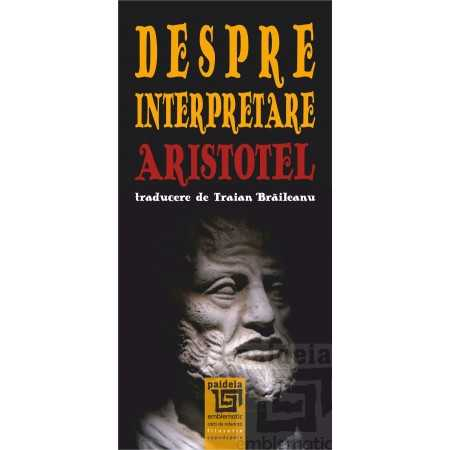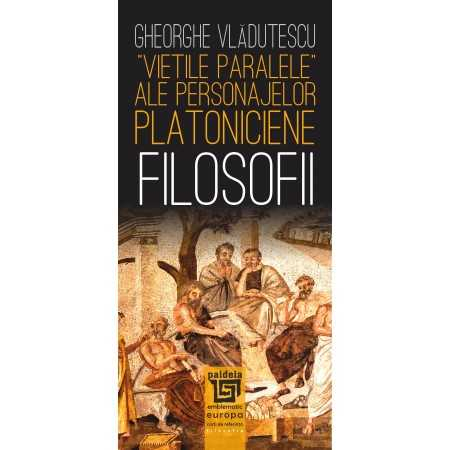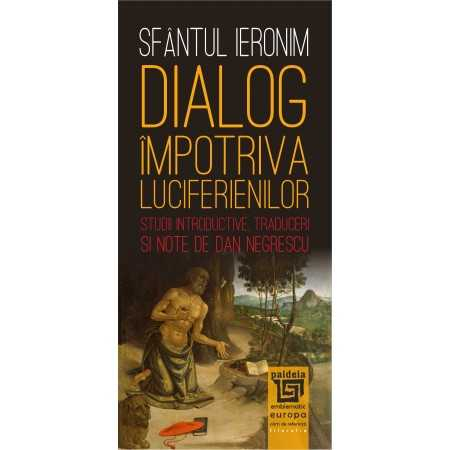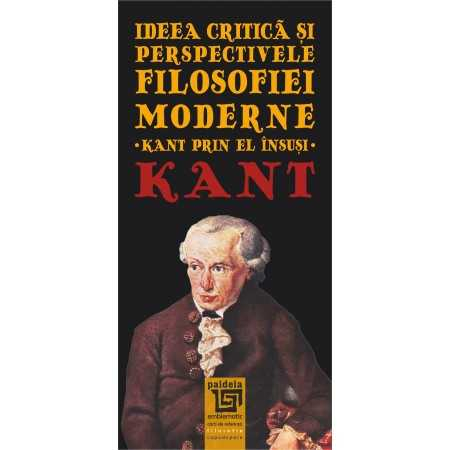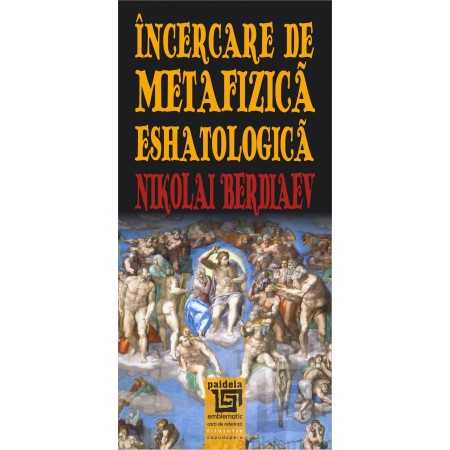Manuscript proposals: info@editurauniversitara.ro / 0745 204 115 //// Tracking orders Individuals / Sales:0745 200 718 / 0745 200 357 Orders Legal entities: 0721 722 783
ISBN: 978-606-28-0278-3
DOI: 10.5682/9786062802783
Publisher year: 2015
Edition: I
Pages: 222
Publisher: Editura Universitara
Author: Traian-Alexandru Miu
Product Code:
9786062802783
Do you need help?
0745 200 718
/
0745 200 357
- Description
- Download (1)
- Authors
- Content
- More details
- Where to find it
- Reviews (0)
This paper aims to analyze the challenges facing the Orthodox Church today and also its perspectives in a society that tends more and more towards globalization, a process that has very special implications such as: secularization, consumerism, crisis ecological, the devaluation of the traditional family, the problem of the place of particular cultures compared to the global one, etc. In this society, the economy must be at the service of the human person, serve solidarity and the common good - the material must not exclude the spiritual. Given that globalization is evolving rapidly today, we will highlight in this paper the various mechanisms of this process and its impact on various aspects of human life, denouncing false solutions and proposing some based on the teaching of the Savior Jesus. Christ kept unaltered within the Orthodox Church.
-
Globalizare si ortodoxie. Provocări şi perspective
Download

TRAIAN-ALEXANDRU MIU was born in 1982 in Targoviste. He obtained his doctorate in theology at the "Ovidius" University of Constanta (2011). Linguistic studies at the National Institute of Languages in Luxembourg (2007-2008). Graduate of the master's courses, specialization in the Social Mission of the Church (Faculty of Orthodox Theology - 2007) and specialization in European Public Administration (Faculty of Law and Administrative Sciences - 2007) at the "Wallachia" University of Targoviste. He holds a degree in theology from the Faculty of Orthodox Theology of the "Valahia" University of Targoviste (2006).
University preparator (2008-2011) and assistant professor (since 2012) within the Faculty of Orthodox Theology and Educational Sciences of the "Valahia" University of Targoviste.
He has published numerous articles and studies in the field of theology.
LIST OF ABBREVIATIONS / 10
PREFACE / 11
INTRODUCTION / 15
CHAPTER I: THE CONCEPT OF "GLOBALIZATION" / 22
1. CONCEPTUAL BOUNDARIES / 22
1.1. Globalization and universality / 22
1.2. Defining the term “globalization” / 27
1.3. Examples of globalization in antiquity / 32
1.4. Globalization today / 35
2. PROBLEM FRAMEWORK, ANALYSIS, CHALLENGES / 44
2.1. Relocation - the consequence of globalization / 44
2.2. Positive and negative aspects of globalization / 45
2.3. solutions from the economy to limit the negative aspects of globalization / 51
3. IMPLICATIONS OF GLOBALIZATION / 55
3.1. Globalization and the economy / 56
3.1.1. Globalization in trade / 57
3.1.2. Globalization on the money market / 58
3.1.3. Globalization in business / 59
3.2. Globalization and technology / 59
3.3. Globalization and culture / 61
CHAPTER II: INFLUENCES OF GLOBALIZATION IN THE SPACE OF ORTHODOXY / 64
1. THE ACTION OF CHRISTIAN SPIRITUALITY IN A GLOBALIZED FRAMEWORK / 64
1.1. Hypermodernity - the age in which we live / 64
1.2. Globalization and the spiritual health of people / 67
1.3. The Savior's conception of social and economic problems / 70
1.4. The evangelical message and the ethics of finance in a globalized framework / 74
1.4.1. Economic ethics from the Christian-Orthodox perspective / 76
1.4.2. Economic crisis - spiritual crisis / 82
1.4.3. Christianity the promoter of a new "economic man" / 84
1.5. The Church and Globalization / 86
1.6. Christian spirituality face to face with consumerism / 92
2. INFLUENCES OF GLOBALIZATION IN THE SPACE OF CHRISTIAN SPIRITUALITY / 97
2.1. Sects, tools for globalization / 97
2.2. Christian science, technique and spirituality / 99
3. GLOBALIZATION AND THE TRADITIONAL ROMANIAN VILLAGE / 102
3.1. The effects of globalization on the traditional Romanian village / 102
3.2. The phenomenon of urbanization - the consequence of globalization / 104
4. THE ORTHODOX CHURCH AND THE EUROPEAN UNION / 108
4.1. The duty and possibility of Orthodoxy to give Europe "a soul, a spirituality, a meaning" / 109
4.2. Orthodoxy and human rights / 120
4.3. The progress of the human person and the development of society / 130
5. THE FUTURE OF THE ENVIRONMENT IN THE GLOBALIZED WORLD / 135
5.1. The environment today / 135
5.2. The spirituality of creation / 142
5.3. Removal from God - the cause of the ecological crisis / 147
5.4. God's care for creation / 150
5.5. The concept of “eco-theology” / 157
6. THE INFLUENCES OF GLOBALIZATION ON THE CHRISTIAN FAMILY / 160
6.1. The sacred character of the Christian family / 160
6.2. Christian family in crisis due to secularization / 165
6.3. Globalization and interfamily relations / 171
6.4. Malthusian and neo-Malthusian theories starting points in the destruction of the Christian family / 172
6.5. Weapons of the destruction of the Christian family in a secularized world / 175
6.5.1. Abortion / 176
6.5.2. Divorce / 181
6.5.3. Child abandonment / 185
6.5.4. Homosexuality / 186
6.5.5. Pornography / 192
6.5.6. Surrogate mothers (carriers) / 196
6.6. For a revaluation of the traditional family / 199
CONCLUSIONS / 201
BIBLIOGRAPHY / 209
PREFACE / 11
INTRODUCTION / 15
CHAPTER I: THE CONCEPT OF "GLOBALIZATION" / 22
1. CONCEPTUAL BOUNDARIES / 22
1.1. Globalization and universality / 22
1.2. Defining the term “globalization” / 27
1.3. Examples of globalization in antiquity / 32
1.4. Globalization today / 35
2. PROBLEM FRAMEWORK, ANALYSIS, CHALLENGES / 44
2.1. Relocation - the consequence of globalization / 44
2.2. Positive and negative aspects of globalization / 45
2.3. solutions from the economy to limit the negative aspects of globalization / 51
3. IMPLICATIONS OF GLOBALIZATION / 55
3.1. Globalization and the economy / 56
3.1.1. Globalization in trade / 57
3.1.2. Globalization on the money market / 58
3.1.3. Globalization in business / 59
3.2. Globalization and technology / 59
3.3. Globalization and culture / 61
CHAPTER II: INFLUENCES OF GLOBALIZATION IN THE SPACE OF ORTHODOXY / 64
1. THE ACTION OF CHRISTIAN SPIRITUALITY IN A GLOBALIZED FRAMEWORK / 64
1.1. Hypermodernity - the age in which we live / 64
1.2. Globalization and the spiritual health of people / 67
1.3. The Savior's conception of social and economic problems / 70
1.4. The evangelical message and the ethics of finance in a globalized framework / 74
1.4.1. Economic ethics from the Christian-Orthodox perspective / 76
1.4.2. Economic crisis - spiritual crisis / 82
1.4.3. Christianity the promoter of a new "economic man" / 84
1.5. The Church and Globalization / 86
1.6. Christian spirituality face to face with consumerism / 92
2. INFLUENCES OF GLOBALIZATION IN THE SPACE OF CHRISTIAN SPIRITUALITY / 97
2.1. Sects, tools for globalization / 97
2.2. Christian science, technique and spirituality / 99
3. GLOBALIZATION AND THE TRADITIONAL ROMANIAN VILLAGE / 102
3.1. The effects of globalization on the traditional Romanian village / 102
3.2. The phenomenon of urbanization - the consequence of globalization / 104
4. THE ORTHODOX CHURCH AND THE EUROPEAN UNION / 108
4.1. The duty and possibility of Orthodoxy to give Europe "a soul, a spirituality, a meaning" / 109
4.2. Orthodoxy and human rights / 120
4.3. The progress of the human person and the development of society / 130
5. THE FUTURE OF THE ENVIRONMENT IN THE GLOBALIZED WORLD / 135
5.1. The environment today / 135
5.2. The spirituality of creation / 142
5.3. Removal from God - the cause of the ecological crisis / 147
5.4. God's care for creation / 150
5.5. The concept of “eco-theology” / 157
6. THE INFLUENCES OF GLOBALIZATION ON THE CHRISTIAN FAMILY / 160
6.1. The sacred character of the Christian family / 160
6.2. Christian family in crisis due to secularization / 165
6.3. Globalization and interfamily relations / 171
6.4. Malthusian and neo-Malthusian theories starting points in the destruction of the Christian family / 172
6.5. Weapons of the destruction of the Christian family in a secularized world / 175
6.5.1. Abortion / 176
6.5.2. Divorce / 181
6.5.3. Child abandonment / 185
6.5.4. Homosexuality / 186
6.5.5. Pornography / 192
6.5.6. Surrogate mothers (carriers) / 196
6.6. For a revaluation of the traditional family / 199
CONCLUSIONS / 201
BIBLIOGRAPHY / 209
One thing that is well known today is that world society is on the path to a process of multiple transformations, generically called globalization. The symptoms of this phenomenon are very diverse, globalization leading, in some respects, to the dissolution of many aspects of the old social order, thus causing a series of questions and problems.
The author of this book aims to analyze the challenges that globalization addresses to the Orthodox Church today, an issue that arouses a keen interest, its approach being very topical and important. Problems such as: hypermodernism, consumerism, spiritual and ecological crisis, the devaluation of the Christian family, etc., are found in a theological approach in this paper.
The undertaking of such a study, which examines the broad issues that globalization poses to Orthodoxy, presupposes first of all an act of responsibility, critical spirit and inclination towards research. In fact, it is our duty to analyze and give a pertinent answer to the questions that globalization has generated. The Orthodox Church, armed with its bimillennial spirituality, knew how to save man from the past, when he faced the vicissitudes of various earthly arrangements that ignored the presence of God, considering himself self-sufficient, and will surely to show the contemporary man the path he must follow in order to avoid the current dangers. We must not forget that in the past, the Church has faced other global challenges, namely missionary ones. If in the first phase the word of the Gospel was addressed to the population of Jewish origin, then it acquires a universal character by receiving it among the various nations, abstracting from the differences of race, gender, social status, language or color. Thus the Church has proved to be a model of globalization truly in the service of man.
Globalization has brought about rapid and diverse social changes, amid the unprecedented development of technical means, ways of communication and the suppression of borders between the various corners of the world through new ways of financial transactions. As the author points out, globalization endangers personal communion because it accentuates and promotes relationships based on commercial interest, financial accumulations, thus neglecting the person. The fulfillment that the person, materialized in the state of deification must be the target of every human being, something neglected by the hypermodern society in which we live, which urges us to self-sufficiency, materialism, laxity, superficiality, etc. There is a tendency for traditional values of Christianity to be forgotten or rather annihilated by the new order that prevents them from trying to impose themselves.
In the context of the much-trumpeted economic crisis facing humanity, the author emphasizes the real cause that led to material destabilization, namely the deep spiritual crisis. Consumerism, meaning the lack of measure, has generated destabilization, hatred, lies and conflicts on a global scale. The solution proposed in this book to get out of this impasse is asceticism, the way out of the slavery of the useless that corrupts man and pushes him to do reprehensible things. Therefore, as the author says, "prudence, trust, transparency and especially love of fellow men are signs of normalcy, of a society that lives the universality of the evangelical message."
Also, the current deep ecological crisis has its origins also in the absence of the measure promoted by globalization. The deterioration of the ecosystems in which we live is the unfortunate consequence of a logic that aims at economic profit and promoting comfort. Secularizing logic did not take into account the fact that the world is God's creation, which made them all good and beautiful, and we are only stewards of the work of divine hands. Our well-being will depend on how we relate to creation. Respect for the environment means, implicitly, respect for the One who gave it to us.
Approaching the problems that arise within the Christian family with the emergence of the globalization process, the author starts from highlighting its sacred character, and then to analyze the interfamily relations that are outlined in the secularizing space caused by globalization. The revaluation of the traditional Christian family today, when threatened by various dubious manifestations from a moral point of view, is a requirement of the times in which we live, a duty that we must fulfill through pastoral, spiritual and educational efforts.
In solidarity with the scientific opinion of the author of this book, I also affirm the need to anchor in the perennial values that Christian spirituality makes available to us in order to face the challenges launched by globalization. People must be continually oriented towards God and in the light given to them by the One who is everywhere and fulfills them all, they will know how to see the viable solutions to the problems they face.
Being an interdisciplinary work, the research undertaken in this book combines fields such as: Christian Morality and Orthodox Spirituality, Christian Missiology, Pastoral, Universal Church History, Dogmatics, Bioethics, Biblical Studies and even Sociology and Economics. The approached topics are thoroughly argued in terms of the documentation sources used, showing a serious and responsible research of the topic, done with professionalism and dedication, the entire content harmonizing and highlighting the scientific nature of the paper.
This book is intended to be a guide for Orthodox Christians to understand the often incomprehensible complexity of the problems of today's society, which is in full mutational process!
† N I F O N
Archbishop and Metropolitan
The author of this book aims to analyze the challenges that globalization addresses to the Orthodox Church today, an issue that arouses a keen interest, its approach being very topical and important. Problems such as: hypermodernism, consumerism, spiritual and ecological crisis, the devaluation of the Christian family, etc., are found in a theological approach in this paper.
The undertaking of such a study, which examines the broad issues that globalization poses to Orthodoxy, presupposes first of all an act of responsibility, critical spirit and inclination towards research. In fact, it is our duty to analyze and give a pertinent answer to the questions that globalization has generated. The Orthodox Church, armed with its bimillennial spirituality, knew how to save man from the past, when he faced the vicissitudes of various earthly arrangements that ignored the presence of God, considering himself self-sufficient, and will surely to show the contemporary man the path he must follow in order to avoid the current dangers. We must not forget that in the past, the Church has faced other global challenges, namely missionary ones. If in the first phase the word of the Gospel was addressed to the population of Jewish origin, then it acquires a universal character by receiving it among the various nations, abstracting from the differences of race, gender, social status, language or color. Thus the Church has proved to be a model of globalization truly in the service of man.
Globalization has brought about rapid and diverse social changes, amid the unprecedented development of technical means, ways of communication and the suppression of borders between the various corners of the world through new ways of financial transactions. As the author points out, globalization endangers personal communion because it accentuates and promotes relationships based on commercial interest, financial accumulations, thus neglecting the person. The fulfillment that the person, materialized in the state of deification must be the target of every human being, something neglected by the hypermodern society in which we live, which urges us to self-sufficiency, materialism, laxity, superficiality, etc. There is a tendency for traditional values of Christianity to be forgotten or rather annihilated by the new order that prevents them from trying to impose themselves.
In the context of the much-trumpeted economic crisis facing humanity, the author emphasizes the real cause that led to material destabilization, namely the deep spiritual crisis. Consumerism, meaning the lack of measure, has generated destabilization, hatred, lies and conflicts on a global scale. The solution proposed in this book to get out of this impasse is asceticism, the way out of the slavery of the useless that corrupts man and pushes him to do reprehensible things. Therefore, as the author says, "prudence, trust, transparency and especially love of fellow men are signs of normalcy, of a society that lives the universality of the evangelical message."
Also, the current deep ecological crisis has its origins also in the absence of the measure promoted by globalization. The deterioration of the ecosystems in which we live is the unfortunate consequence of a logic that aims at economic profit and promoting comfort. Secularizing logic did not take into account the fact that the world is God's creation, which made them all good and beautiful, and we are only stewards of the work of divine hands. Our well-being will depend on how we relate to creation. Respect for the environment means, implicitly, respect for the One who gave it to us.
Approaching the problems that arise within the Christian family with the emergence of the globalization process, the author starts from highlighting its sacred character, and then to analyze the interfamily relations that are outlined in the secularizing space caused by globalization. The revaluation of the traditional Christian family today, when threatened by various dubious manifestations from a moral point of view, is a requirement of the times in which we live, a duty that we must fulfill through pastoral, spiritual and educational efforts.
In solidarity with the scientific opinion of the author of this book, I also affirm the need to anchor in the perennial values that Christian spirituality makes available to us in order to face the challenges launched by globalization. People must be continually oriented towards God and in the light given to them by the One who is everywhere and fulfills them all, they will know how to see the viable solutions to the problems they face.
Being an interdisciplinary work, the research undertaken in this book combines fields such as: Christian Morality and Orthodox Spirituality, Christian Missiology, Pastoral, Universal Church History, Dogmatics, Bioethics, Biblical Studies and even Sociology and Economics. The approached topics are thoroughly argued in terms of the documentation sources used, showing a serious and responsible research of the topic, done with professionalism and dedication, the entire content harmonizing and highlighting the scientific nature of the paper.
This book is intended to be a guide for Orthodox Christians to understand the often incomprehensible complexity of the problems of today's society, which is in full mutational process!
† N I F O N
Archbishop and Metropolitan
www.editurauniversitara.ro
If you want to express your opinion about this product you can add a review.
write a review
Customer Support Monday - Friday, between 8.00 - 16.00
0745 200 718 0745 200 357 comenzi@editurauniversitara.ro
6359.png)
![Globalization and Orthodoxy. Challenges and Perspectives [1] Globalization and Orthodoxy. Challenges and Perspectives [1]](https://gomagcdn.ro/domains/editurauniversitara.ro/files/product/large/globalizare-si-ortodoxie-provocri-i-perspective-746-42464.jpg)
